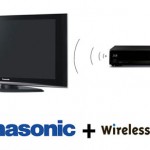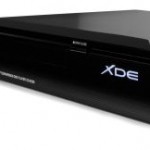I finally finished writing that guide I was talking about last week. The DVD-lab Pro Basic DVD Authoring Guide is one of the more complicated guides I’ve written recently, and also not aimed at beginners that most of my guides are about. DVD-lab Pro, while expensive compared to most other home based DVD authoring solutions, gives you a lot of power and flexibility that you only find in packages worth ten times as much. And it’s relatively easy to use too, once you get the hang of it, and surprisingly error free (no bugs, crashes or any of those things that you usually find with DVD authoring tools). If you need to make DVDs on a semi-professional level, then this is a great tool.
Okay, enough link/content promotion, let’s get on with the news.
 In copyright news, P4P, an upgrade to existing P2P technology whereby local peers are preferred over non-local connections, is a technology that is welcomed by ISPs in their fight against ever increasing bandwidth demands. Local bandwidth is cheaper, you see. But because of the local nature of things, it makes for greater control, and there are those who think that P4P might allow for better anti-piracy measures. Meanwhile, ISPs continue to fight against P2P, on bandwidth related reasons as well as pressure from content owners. Comcast’s anti-P2P stance has come under fire from the FCC, who says it “does not constitute reasonable network management” and that “the company’s discriminatory and arbitrary practice unduly squelches the dynamic benefits of an open and accessible Internet”. Nice comments from the FCC, I have to say.
In copyright news, P4P, an upgrade to existing P2P technology whereby local peers are preferred over non-local connections, is a technology that is welcomed by ISPs in their fight against ever increasing bandwidth demands. Local bandwidth is cheaper, you see. But because of the local nature of things, it makes for greater control, and there are those who think that P4P might allow for better anti-piracy measures. Meanwhile, ISPs continue to fight against P2P, on bandwidth related reasons as well as pressure from content owners. Comcast’s anti-P2P stance has come under fire from the FCC, who says it “does not constitute reasonable network management” and that “the company’s discriminatory and arbitrary practice unduly squelches the dynamic benefits of an open and accessible Internet”. Nice comments from the FCC, I have to say.
Some more positive news in the copyright fight, online video site Veoh has had a copyright case against it (by an Adult entertainment company, no less) dismissed by a Californian Judge. The happiest people will be Google/YouTube, because this precedent could mean that the cases against them are dismissed too. While the courts (and the FCC) seems to be sending out the right messages, the politicians, once again, might be behind the times. With the US elections coming up in just over two months time, both the RIAA and the MPAA are converging on the two political parties’ conventions and lobbying like crazy, spending hundreds of thousands of dollars if needed. I talked about McCain’s views on copyright a couple of weeks ago, and now that the Democrats have chosen Joe Biden as Obama’s running mate, it’s only fair to point out Biden’s pro-RIAA and pro-FBI voting record as well. I know it’s as cynical as hell, but my experience with democratic elections is that you vote for the candidate you hate the least, or you think you will hate the least. Do a bit of research on the Republican and the Democrat’s records on copyright issues, decide which matches your own philosophies the closest (or at least which you find least repulsive), then make that one of the issues that will decide on who you vote for. And you should vote. Here in Australia, voting is compulsory, and you get fined if you don’t vote (of course, we have elections on a Saturday, so everyone has time to vote). Voting should be compulsory in all democracies, in my opinion.
But while the politicians are doing their politicking, the content owners are still hoping DRM is the answer to all their prayers, despite the setback the music industry have had in trying to introduce DRM. Sony, the king of DRM, is once again at the center of it all by introducing a new multi-DRM content format for online movie downloads. Sure, on paper, the new DRM scheme sounds more reasonable, allowing any registered device to work with the DRM’d content, as opposed to forcing you to buy a copy for each device. But the real problem is that if one day they decide to change this policy, then they could do it with a push of a button, and re-write the terms of use of your previously “purchased” content. Just look at what happened with the various collapse of the music DRM stores, and how purchased content became useless once the authentication servers have been turned off. DRM is dangerous, and it should be banned. But not before WirelessHD, a new wireless HD video/audio transmission format, introduces yet another form of DRM. Sigh.
 Onto HD news now. I wrote a mid-week blog that looked at the weekly Nielsen VideoScan Blu-ray/DVD sales figures. Hopefully this will become a regular feature in the future. Looking at the stats and graphs I’ve made, it doesn’t seem Blu-ray has made much of a dent at all in terms of either volume or percentage of the market compared to DVDs. DVDs will be here for a long time to come, unless studios decide to pull the plug on the format, which they won’t because it’s still too lucrative (still something like 14:1 sales ratio, in terms of revenue and probably higher in terms of units, at the moment). With upscaling DVD players becoming standard and better in quality, Blu-ray really needs to up the promotional work again.
Onto HD news now. I wrote a mid-week blog that looked at the weekly Nielsen VideoScan Blu-ray/DVD sales figures. Hopefully this will become a regular feature in the future. Looking at the stats and graphs I’ve made, it doesn’t seem Blu-ray has made much of a dent at all in terms of either volume or percentage of the market compared to DVDs. DVDs will be here for a long time to come, unless studios decide to pull the plug on the format, which they won’t because it’s still too lucrative (still something like 14:1 sales ratio, in terms of revenue and probably higher in terms of units, at the moment). With upscaling DVD players becoming standard and better in quality, Blu-ray really needs to up the promotional work again.
Speaking of upscaling DVD, Toshiba is back into the A/V market with its XDE range of upscaling players, which I mentioned a couple of weeks ago. The players are getting some good promotion from Amazon and other retailers, certainly in the press too thanks for Toshiba’s headline making news earlier in the year. This week, some Taiwanese optical manufacturers have enquired about buying HD DVD patents from Toshiba. The analysis I’ve read suggest they want to do this because they want a stronger negotiation position with Sony in regards to Blu-ray licensing. But Toshiba is holding on to these patents, which either suggest that Sony paid Toshiba to not let HD DVD be promoted again, or that Toshiba has it’s own plans in terms of the China only HD DVD format. Toshiba are not one to give up so easily, it seems, and they’re already talking up beyond 1080p resolution video as well as wireless HDMI, which will be added to their devices next year. There’s also talk about 32 GB memory cards, which rivals Blu-ray for storage, is re-writable and probably cheaper given the prices of USB memory and memory cards these days. Looks like Blu-ray will have some competition in the marketplace when it comes to HD video.
And speaking of competition, the BDA is not happy that satellite and cable companies are using terms like “as good as Blu-ray” when it comes to describing the HD subscription services. Seems the BDA is ever edgier these days, when it comes to “as good as Blu-ray” type services that could render Blu-ray a sideshow in the HD video arena. LG is launching a DVD player that supports HD DivX video, so even Blu-ray supporters are looking at alternatives. The next version of DivX will use H.264, and an early alpha version of the encoder (in command line format), is already available. Blu-ray manufacturers will probably embrace this new format, since all their players can decode H.264, and thereby (with a little modification), DivX 7 as well. The disc-less home theatre dream that I have seems to be getting closer to reality, and if that becomes a reality, then it will be a nightmare for the BDA (unless they do the sensible thing and add managed copy, which make the actual Blu-ray disc just a carrier, like Toshiba’s 32 GB memory cards or portable hard-drive).
![]() And in gaming, the Wii has hurt the arcade industry a lot by bringing arcade style games to the home.The Xbox 360 is trying to reverse the trend by bringing Xbox 360 games to the arcade, with coin-ops build around a Xbox 360 console. It’s an interesting idea, and with a common controller interface, a wide variety of games available, it could be a winner. Unless it RRODs, of course.
And in gaming, the Wii has hurt the arcade industry a lot by bringing arcade style games to the home.The Xbox 360 is trying to reverse the trend by bringing Xbox 360 games to the arcade, with coin-ops build around a Xbox 360 console. It’s an interesting idea, and with a common controller interface, a wide variety of games available, it could be a winner. Unless it RRODs, of course.
As usual, details of the next PS3 firmware update has been leaked. Screenshot-grabbing, the rumours say, will be the main new feature of this update.
Okay, that’s it for another week. Don’t forget to read my DVD-lab Pro guide. There’s a 30-day trial version available from the official site, so it’s worth a go if you want to see if you can make better menus that what the commercial developers are making these days. Hannah Montana!
(I think he meant to say hasta mañana – ed)





